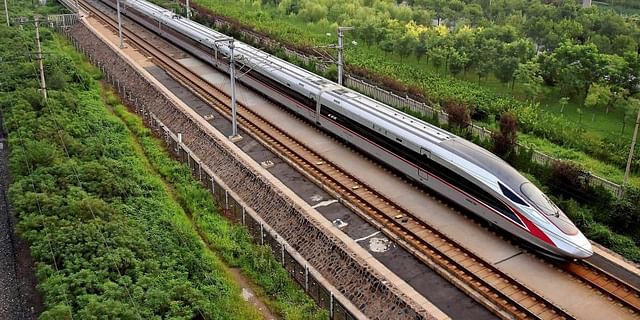
Why Pinarayi govt’s ambitious SilverLine project is facing hurdles?

The Kerala government’s ambitious K-Rail SilverLine project, which envisages connecting the state’s northern part with the southern tip via semi high-speed trains that would condense travel time to just under four hours, has been facing vehement opposition in the state over environmental and economic concerns.
All about the project
Earmarked at an investment of ₹63,940 crore, the project aims to launch trains running at 200 km/hr on a proposed 529.45 km stretch between Kerala’s Kasargod in the north and Thiruvananthapuram in the south. The stretch which will have 11 stations across as many districts, will cut down the travel time to four hours (at 200km/hr). The usual time of travel between the two destinations is 12 hours.
The project which is jointly handled by the Kerala Rail Development Corporation Limited (KRDCL) and the Union Ministry of Railways has been given a deadline of 2025.
With most trains operating at an average speed of 45 km/hr, courtesy the uneven terrain of the state, the government claims the new project will not only make travel faster for commuters, but also reduce congestion on the traditional rail routes and roads and in turn help bring down the frequency of accidents.
The government also says that the new railway stretch will help in the reduction of greenhouse gas emissions, in the expansion of Ro-Ro services apart from generating more jobs and helping in the integration of airports and IT corridors.
Why K-Rail SilverLine stands out
Electric multiple unit (EMU) type trains will operate through the new line. Each EMU train has nine cars which can be extended up to 12 and can seat up to 675 passengers across its business and standard class compartments.
The line beginning from Thiruvananthapuram, will run through 11 stations in Kollam, Chengannur, Kottayam, Ernakulam, Cochin Airport, Thrissur, Tirur, Kozhikode and Kannur before reaching Kasargod.
Three of the stations, at Thiruvanthapuram, Ernakulam and Thrissur, will be elevated, while the one at Kozhikode will be under the ground. The rest will be at grade. Besides, there will be an under passage at every 500m of the corridor and provision of service roads along the alignment will also be ensured.
The project also promises last mile connectivity by providing cab feeder services, share auto services, eBus service and bicycle/bike rental schemes.
Current status of project
Land acquisition has already began for the project with Cochin Airport having already offered 1 acre of land for the station. A total of 1,383 hectares of land needs to be acquired for the project of which 1,198 hectares is private land.
The Cabinet which approved the project in June this year, has also sanctioned the provision of ₹2,100 crore from the Kerala Infrastructure Investment Fund Board (KIIFB).
Why the project is facing opposition?
Even though it is touted as one of the biggest infrastructure projects pushed by the Pinarayi Vijayan government, the SilverLine project is being opposed by political parties including the Congress, BJP and the Indian Union Muslim League.
Protesters say the project is not only financially unviable and will cause the displacement of over 30,000 families, but would also cause severe environmental damage as it would pass through paddy fields, wetlands and hills.
As many as 17 MPs from Opposition parties of the state in a joint petition to the Union Railways Minister have called the project an “astronomical scam” and said that it would push the state into further debt.
K-Rail Silverline Viruddha Janakeeya Samiti, a citizen outfit, which also been staging separate protests against the project, has alleged that the embankments that will be constructed on either side of the railway line will clog the drainage channels of the local areas, thus making these neighbourhoods susceptible to flooding during rains.
E Sreedharan, the former chief of Delhi Metro, has also criticized the project, stressing that it is “ill-planned” and needs major tweaks.
The criticism against the project, most recently, has come from senior lawyer and activist Prashant Bhushan, who said apart from digging a hole into state finances, the project will cause major environmental damage to the flora and fauna of Kerala.

